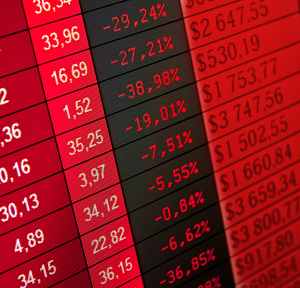Wealth Strategies
Tesla Saga Highlights Pros, Cons Of Buyouts

After the maverick tycoon tweeted he was considering buying out the electric carmaker, it roiled financial markets and has set debate moving on whether such a move makes sense either for the company or wider investors.
Elon Musk, a hero/villain figure to some for his outspoken comments and engineering feats has rattled investors by tweeting this week that he plans to take Tesla, the electric car business he had founded, back into private hands.
The tycoon’s use of a tweet to communicate this aim made top billing in the business and non-business news sections around the world yesterday, and has prompted US regulators (source: Wall Street Journal) to check if the Tesla chief executive was truthful when he said he had secured funding for what would be the world’s largest corporate buyout. Reports said officials at the Securities and Exchange Commission want to know whether Musk had a factual basis for saying that the going-private transaction was all but certain, with only a shareholder vote needed to seal the move.
Shares in Tesla fell by 2.43 per cent yesterday, at $370.34 per share. South Africa-born Musk tweeted that he was mulling over whether to take the company private at $420 a share.
On top of that, the saga highlights a trend of “de-equitization” in some markets as business founders, sometimes for regulatory reasons as well as due to costs and control have taken businesses off the listed equity market. Such moves arguably make shareholder activism harder to pull off and make corporate chiefs less accountable. On the flipside, such business leaders, without the pressures of quarterly reporting and a constant need to show results, can take a longer-term investment approach, as has been the case when some of the great business empires of old were formed in the 19th century. The wealth management sector in North America, for example, has seen a growing interest in private capital investing in recent years, as low equity yields and ultra-low official interest rates have made conventional stock markets relatively unattractive. Even though private capital is a typically less liquid asset class, its benefits are seen as compensation (see more here about private capital).
Investment and wealth managers are certainly startled, if not particularly rattled, by Musk’s tweet.
“Irascible founder and CEO seeks to avoid “old world” scrutiny by taking the company private. The incorrectly priced bond deal from a year ago has barely traded above issue ever since. Fixed income investors in the deal confused the wanderlust of new world technology and equity price performance with being a good bond. Suffice to say, it was not one for us. Taking the company private has little material impact on the bond (up a couple of points yesterday) but expectations of change of control benefit (redemption at 101 likely misplaced). The bigger question is who’d want to spend that when you could buy a couple of luxury German car manufacturers for the same price?” Adrian Hull, co-head of fixed income at Kames Capital, said.
Media reports stated that some traders in Tesla’s options made massive paper profits on Tuesday, while short-sellers were hit with about $1.3 billion in paper losses after Musk’s tweet.
A report by Bloomberg on August 8 stated that Musk and Masayoshi Son had talked last year about SoftBank Group Corp investing in Tesla, including potentially taking the electric carmaker private. The newswire quoted unnamed sources. (The report said Softbank and Tesla did not comment.)
A high-profile firm, Tesla has nevertheless been beset by financial concerns such as whether it is able to produce enough cars to generate sufficient revenue. Also, with big carmakers GM and BMW eyeing areas such as electric cars, the concern may be that Telsa, in some ways an innovator, may not win the largest prizes.
Tesla board members said Musk told them a week ago about the idea of taking Tesla into private hands.
Tesla has $920 million in convertible bonds that are due in March, with a conversion price of $359.87. If the firm’s stock price is below that level at the time, Tesla must spend cash to redeem the bonds; if the stock price is above that level, the convertible holders will convert them into Tesla shares, so that the firm does not need to pay out (source: WSJ).
Tesla had $2.2 billion in cash on its balance sheet as of June 30 and free cash flow of negative $1.8 billion in the first half of 2018, the newspaper said.
Musk’s relationships with Wall Street analysts have been fractious. Earlier this year he attacked analysts for their “boring” questions at a corporate presentation.
(Editor’s note: Musk has to some extent made a rod for his own back in the past by having given insufficient forward guidance to analysts and the wider market. The economics of the electric car business can also be brutal, with the big boys of GM, Toyota and BMW, for example, able to deploy their resources, the issue is to what extent the stylish-looking Teslas can withstand their push into the space. It may be that with so much “dry powder” of uncommitted private equity capital out there, there will be buyers for the firm, but private equity partners are just as interested in a fairly consistent business leadership style as those holding equities. Musk has achieved many marvels, such as with his rocket flights, but the question is whether his latest move is a marvel too far.)
